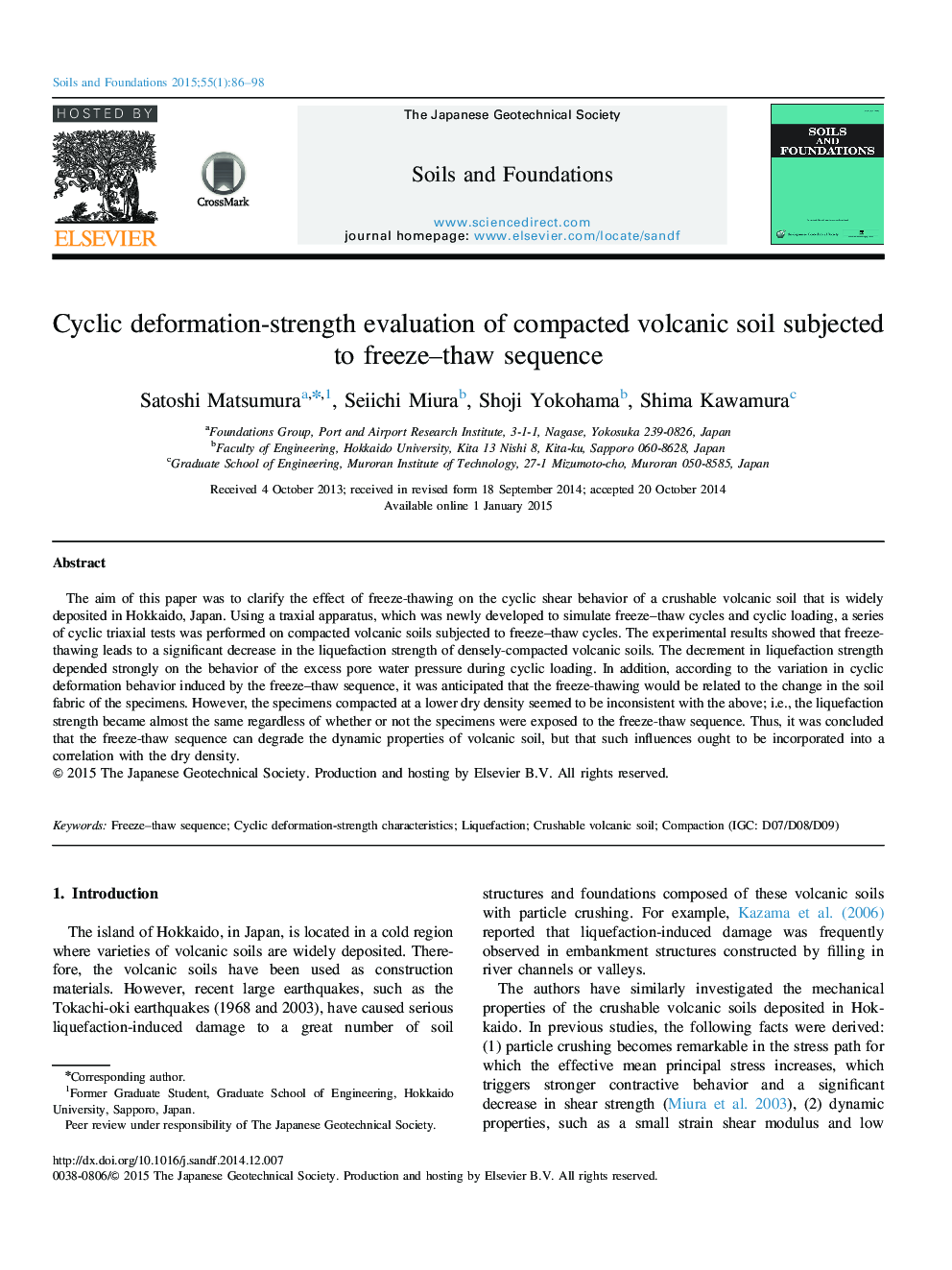| Article ID | Journal | Published Year | Pages | File Type |
|---|---|---|---|---|
| 307119 | Soils and Foundations | 2015 | 13 Pages |
The aim of this paper was to clarify the effect of freeze-thawing on the cyclic shear behavior of a crushable volcanic soil that is widely deposited in Hokkaido, Japan. Using a traxial apparatus, which was newly developed to simulate freeze–thaw cycles and cyclic loading, a series of cyclic triaxial tests was performed on compacted volcanic soils subjected to freeze–thaw cycles. The experimental results showed that freeze-thawing leads to a significant decrease in the liquefaction strength of densely-compacted volcanic soils. The decrement in liquefaction strength depended strongly on the behavior of the excess pore water pressure during cyclic loading. In addition, according to the variation in cyclic deformation behavior induced by the freeze–thaw sequence, it was anticipated that the freeze-thawing would be related to the change in the soil fabric of the specimens. However, the specimens compacted at a lower dry density seemed to be inconsistent with the above; i.e., the liquefaction strength became almost the same regardless of whether or not the specimens were exposed to the freeze-thaw sequence. Thus, it was concluded that the freeze-thaw sequence can degrade the dynamic properties of volcanic soil, but that such influences ought to be incorporated into a correlation with the dry density.
